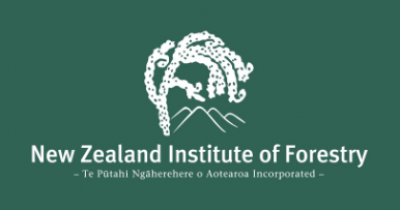13th Dec 2021 Newsletter
PRESIDENTS COLUMN

This is the last newsletter for 2021, and on behalf of the Council I would like to wish you all a very enjoyable Christmas and a relaxed holiday season. I am personally am looking forward to a break and am sure many of you are as well.
2021 has been a interesting (some may say difficult) year for many (most) of us. Lockdowns and prices crashes have resulted in additional pressure but I have also been impressed with the resilience of sector. However we all need to manage or mental health and i am sure a bit of a break over summer is just what the doctor ordered for us all.
During the week NZIF release a media release discussing rural fires and how they have started. This release resulted in 3 radio interviews. For those who missed the release it is reproduced below. My thanks to the very active fire committee who produced the release and who continue to look at rural fire from a very professional and independent position.
My thanks go to everyone who has indicated an interest in the role advertised. It was great to get so many applications. We will look to appoint someone to the role by the end of the year, allowing us to make real headway on the formation of the Forest Advisors registration scheme in the first half of 2022.
I would like to acknowledge the Council for all their time they have volunteered on behalf of members this year. NZIF would not function without the generous support of council members as well and those on the registration board, future foresters and other SIGs.
I must also acknowledge Raewyn and Jay who once again have worked tirelessly behind the scenes ensuring the needs of members are being met and projects are progressing.
To all of you, have a very Merry Christmas and a happy new year.
Thanks
James

INSTITUTE NEWS
NZIF position description
Please see below link for a NZIF position description for a short term role helping develop the Registration Scheme for Forest Advisors working alongside MPI. This very important role will be responsible for ensuring the scheme is in place by Aug 2022.
You will be working closely with the President NZIF and the Registration Board Chair, as well as holding weekly meetings with MPI. Jay Matthes (NZIF Project Manager) will be working closely with you as part of her current role.
If you have questions in regards to the role please contact James on 0220 434511. Otherwise if you are interested in applying for this role, please send your CV to admin@nzif.org.nz by 16 December 2021
____________________________________________________________________________________________
CHANGING CAUSES AND IMPACTS OF UNWANTED FIRES IN OUR FOREST AND RURAL LANDSCAPES
Commercial forests and climate change are regularly cited as contributors to an increase in unwanted rural fires in New Zealand. However, evidence suggests other factors are exacerbating the causes and impacts of fires. The New Zealand Institute of Forestry is concerned. It is calling for current Crown land management policies to be re-examined to improve prevention rather than cure.
For the past decade throughout New Zealand, significant unwanted fires have originated beyond forests, but impacted our forest lands. Examples include the 2017 Christchurch Port Hills fires (suspected cause being ignition by powerlines) and in 2019, the Pigeon Valley fire in Tasman district (started on farmland by cultivation activities in extreme fire hazard conditions) which spread to an adjacent commercial forest. In October 2020, the Lake Ohau fire’s suspected cause of ignition was powerlines again. This fire spread into areas of unmanaged wilding pine. In August 2020, Lake Pukaki region saw a fire spread to unmanaged wilding pines – that fire originated from a campfire.
A 2020 research project assessed New Zealand’s historical fire weather behaviour indices (such as fire rate of spread, drought levels and fuel available to burn). It found these had barely changed over the last four decades. But the management of land use has changed. For example, in the Lake Ohau and Lake Pukaki areas wilding pines are well established. Other examples of changes to land use include the removal of grazing from tussock grasslands in Central Otago and inland Canterbury. Fuel loadings on tussock grassland have increased, as lands under tenure review have been retired from grazing. One such example is the 2019 Te Papanui Conservation Park near Middlemarch, where more than 5,000 hectares of tussock grasslands were burnt.
Unlike other countries, the Department of Conservation has no plans to reduce fuel loadings on the Crown tussock grasslands through controlled burns. Following the extreme 2019/20 bush fires in Australia, an official inquiry received submissions. Australia’s Institute of Foresters submission pointed to the misguided focus of fire suppression strategies.
New Zealand’s Institute of Forestry concurs with the Australian Institute’s view: it’s about greater prevention efforts. President James Treadwell says “We believe New Zealand must focus on reducing the incidence and impacts of unwanted fire through better land management practices. Changes like fuel reduction burning, restrictions or prohibition of high-risk activities during very high or extreme fire danger periods, and further research to support a science-based approach to risk reduction and readiness, will get better results.”
Until the increased exposure to unwanted fires in the forest and rural landscape is minimised through better land management practices, New Zealand will continue to see a build-up of fuel loadings in the hill and high country landscape. Unwanted fires will continue to damage our rural landscape and be costly to extinguish. A review in land management practices is urgently required.
____________________________________________________________________________________________
From the Registrar
Any member of the NZIF has the right to object to an application. Any objection should be lodged with the Registrar registrar@nzif.org.nz within 20 working days of the first appearance (13 December 2021) of the notice in this newsletter, specifying the grounds for the objection.
APPLICATION FOR REGISTERED MEMBER
The following Member has applied to become a Registered Member:
- Bill Davies of Tauranga
Alan Bell, Registrar
NZIF Registration Board
registrar@nzif.org.nz
+64 27 444 7779
____________________________________________________________________________________________
Code of Ethics
If you were unable to attend the Code of Ethics meetings, contact me at admin@nzif.org.nz for the recording.
____________________________________________________________________________________________
NZIF Office Christmas closure
NZIF office will close for the Christmas holidays on the 17th Dec and reopen on the 17th Jan 2022.
____________________________________________________________________________________________
The latest NZIF Journal is now online


FORESTRY EVENTS
Hawkes Bay Local Section invites you to:
A talk by James Treadwell.
Our President will be providing a presentation on the status of NZIF, issues and our place in the forest industry.
Date and time: 16th December @ 4pm to 6pm (approx.).
Venue: Brave Brewery, address: 205 Queen St East, Hastings; the venue has outdoor seating and a beer and light food is available.
This meeting is being part financially supported by NZIF, and is therefore available to NZIF members ONLY. All participants need to register with admin@nzif.org.nz, no walk-in attendees accepted.
RSVP Raewyn at admin@nzif.org.nz by 14th Dec 2021
Please note this is a Vaccinated only event. You will need to show your vaccine passport on entry to the Brave Brewing Co

NZIF Administrator
Email: NZIF Office
Mobile: +64 22 653 3750
NZIF Registration Board
Email: Registrations
Mobile: +64 27 463 1118
Complaints
Email: Complaints
Appeals
Email: Appeals
© All rights reserved. No part of this site may be reproduced, adapted, or distributed without prior written permission
We are a forum to exchange ideas, opinions and information about forestry.
We encourage and help our members attain and maintain the highest standards of their profession.




